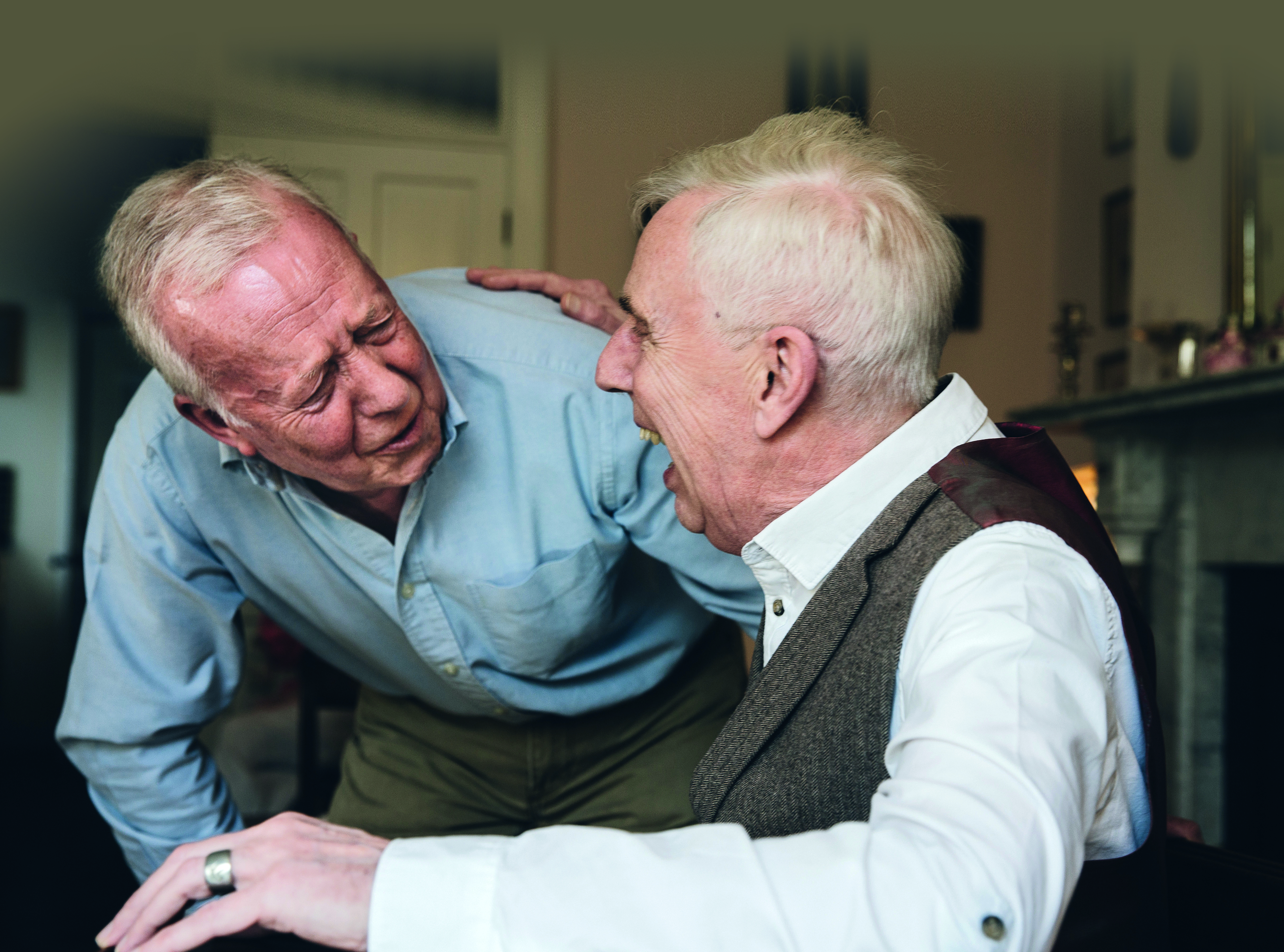By Rick Lauber
A couple of months had passed since I last saw my good friend, Larry (not his real name). Our latest meeting was for coffee. We lingered over our cups catching up with each other’s news and, as usual, trying to solve the problems of the world. Before parting company, Larry and I began planning our next get-together. Perhaps go and we’d watch a football game together. Sounded like fun!
Remembering our conversation, I e-mailed Larry recently to make arrangements. A week or so passed, with no reply. “Oh well”, I thought. “He’s a busy guy with his career and his family”. I decided to follow up.
Unfortunate news
Surprisingly, it wasn’t Larry who replied to my second e-mail—it was his wife with an explanation. Larry had apparently been more tired than usual and had felt some unusual numbness on the left side of his face. She recommended a doctor’s visit to check him out and they ended up with specialist’s appointments at their local hospital. The diagnosis? A tumor requiring surgery.
Surgery day came … and with it, some bad news. The tumor could not be removed. Larry would remain in the hospital for a few weeks until a hospice bed became available. A hospice?!?! I could not believe what I’d just read. Larry who is around my age seemed to be in good shape. He didn’t smoke or drink heavily, and didn’t seem to who have a worry in the world, until now.
While I do have previous experience with caregiving as my mother had Parkinson’s disease and Leukemia and my father had Alzheimer’s disease, I wasn’t prepared for this news. Larry was too young! I arranged a time to visit. While driving to the hospice, my mind raced … what would I say? There was nothing that really sounded right (anything I dreamed up sounded so fake and/or “canned”), so I decided it might be best to not rehearse the perfect greeting and conversation starter. I arrived at the hospice, parked, and walked inside.
First visit
The front desk nurse on-duty cheerfully greeted me, pointed me in the direction of Larry’s room. I remember walking slowly … maybe in the hopes of delaying facing the truth? When reaching the room, I found the door slightly ajar. I gently knocked and swung the door open. Larry was inside – sitting in a wheelchair and covered with a blanket. He glanced in my direction. “Larry”, I stammered. “Rick!”, he responded. “Thank you for coming to see me”. I had no idea of how he would reply but I was relieved that he recognized me. We sat and talked for some time … he shared his story of how quickly everything had gone. He pointed out a collection of ball caps on a shelf behind me with a smile. Larry had long been a sports nut and each cap had been personally delivered by a visiting friend. I was pleased to hear that he found the hospice comfortable and how he appreciated it being so close to his family.
I share this story to emphasize an important point … caregiving doesn’t always involve older adults. Yes, adult children helping their senior parent(s) commonly occurs (and is my own experience), but many caregivers are husbands, wives, or even younger children. An accident or a health concern can happen to anyone at any time. Consider that actor, Michael J. Fox was only 29 years old when he was diagnosed with Parkinson’s disease.
Getting your house in order
Not wanting to sound morbid, but to plan thing ahead is key, regardless of your age. Draft up a will, get your financial house in order, check off some items in your “bucket list”, and hold family conversations about final wishes. Many caregivers and seniors
often ignore the required discussion and/or stall those conversations for good reasons – it’s not easy to talk about this kind of stuff! Try approaching Mom / Dad, introducing the subject of final plans, and explaining that you want to know for your own comfort. It’s hard to argue with someone saying, “I’ve been giving a great deal of thought to my own future and just wondered about your own plans … I certainly don’t want to guess and be wrong about what you want.”
Caregiving requires a great deal of effort, balance, outside help, patience, and even creativity. Sadly, Larry and I won’t be sipping coffee or cheering on the local football team at the stadium. It seems far more likely that I’ll be delivering my own ball cap for Larry’s collection and we’ll be watching football games on the television set in his hospice room.
Rick Lauber is the author of the Caregiver’s Guide for Canadians and a former co-caregiver for his parents.












